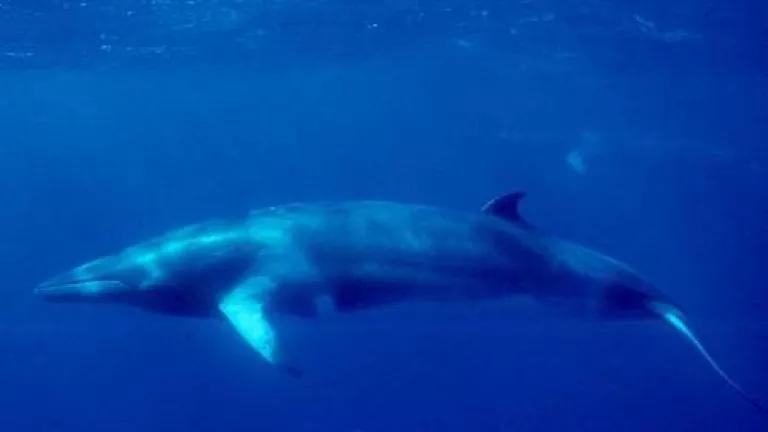
Despite the ban on commercial whaling and recent decision by the UN International Court of Justice that Japan’s “scientific research” whaling program in the Antarctic was illegal, Japan just released a NEW plan for “research” whaling in the Antarctic.
The new plan allows Japan to kill 333 minke whales annually, for a period of 12 years. That plan will be submitted to the International Whaling Commission’s (IWC) Scientific Committee for review.
Whaling “for purposes of scientific research” is exempt from the 1986 international ban on commercial whaling, and Japan has been conducting “research” whaling for years in hopes of proving that whale populations are bountiful enough to resume commercial whaling. But The ICJ judgment last March found in no uncertain terms that Japan’s whaling was NOT “for purposes of scientific research” and therefore in violation of international law and the IWC’s ban on commercial whaling.
Japan originally agreed to abide by the judgment and halted its 2014/2015 whale hunt in the Antarctic. In a disappointing reversal, Japan later said it would revise its “research” program in order to continue its annual hunt in the Southern Ocean Whale Sanctuary.
The ICJ ruled that there were several aspects of Japan’s “scientific whaling” program — which has killed thousands of whales since its inception — that cast doubt “on its characterization as a programme for purposes of scientific research.” Those factors include the fact Japan did not consider using non-lethal methods; the scale of Japan’s program, sample size and number of whales taken; the open-ended time frame of the program; its limited scientific output to date; and the lack of cooperation between Japan and other domestic and international research programs in the Antarctic Ocean.
In other words, Japan’s “research” was not scientific, produced little actual research, and failed to justify why so many whales needed to be killed.
The court then ordered Japan to revoke all permits and “license[s] to kill” in the Antarctic and refrain from granting any new permits under its research whaling program.
Tucked away in the opinion, the court also stated that “it is to be expected that Japan will take account of the reasoning and conclusions contained in this Judgment as it evaluates the possibility of granting any future permits…”
Latching onto this language, Japan claims it has now “considered” the reasoning and conclusions of the ICJ judgment and has tailored a whole new “research” whaling program in accordance with the judgment.
For instance, in “consideration” of the ICJ’s critique of its sample size, Japan has cut the number of minke whales it will slaughter from 935 to 333. And in “consideration” of the ICJ’s critique that it did not consider using non-lethal methods, Japan will no longer kill other whales like fin and humpback whales. Apparently “data on distribution and abundance for these species” — but not minke whales — can be obtained by the “non-lethal component of the program.”
According to the new plan, the scientific research whaling will fulfill two main objectives. The first is “improvement in the precision of biological and ecological information for the application of the Revised Management Procedure (RMP) to the Antarctic minke whales.” This is code for killing whales to establish their age and abundance, in order to justify lifting the moratorium on commercial whaling and allowing Japan to kill even more whales.
The second main objective is the “investigation of the structure and dynamics of the Antarctic marine ecosystem through building ecosystem models.” This is code for killing whales to see their stomach contents, claiming that it will help establish krill abundance to better model the Antarctic ecosystem.
And if you believe that, I have a bridge to sell you.
The meat of slaughtered whales is sold commercially — or languishes in frozen warehouses due to diminished demand.
Japan’s decision to resume “research” whaling is a transparent attempt to reopen the door for commercial whaling. NRDC will continue our fight to end commercial whaling — because the 21st Century is no place to slaughter whales for profit.
Photo: NOAA

